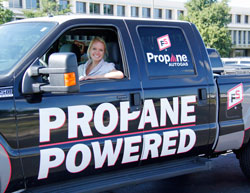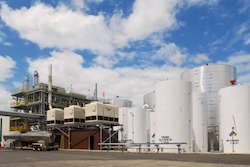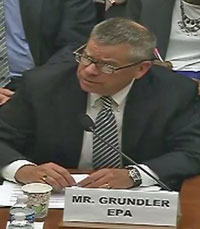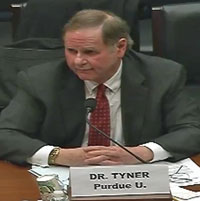 Propane power is on a roll these days, going far beyond it’s traditional uses of home heating and grain drying, moving into areas such as fleet vehicles and school buses. To learn more about propane’s market expansion, Cindy Zimmerman spoke with Becky Hornblower, GROWMARK’s propane marketing and technical services manager. GROWMARK is one of the country’s largest retailers of propane.
Propane power is on a roll these days, going far beyond it’s traditional uses of home heating and grain drying, moving into areas such as fleet vehicles and school buses. To learn more about propane’s market expansion, Cindy Zimmerman spoke with Becky Hornblower, GROWMARK’s propane marketing and technical services manager. GROWMARK is one of the country’s largest retailers of propane.
According to Hornblower, GROWMARK markets propane in 16 states and operates more than 300 company-owned transports, which she said really helps with their supply network. This resulted in the sale of more than 200 million gallons of propane sold in fiscal year 2015, and this year looks even stronger.
One major area of growth for the company is the autogas market and Hornblower noted that their members have been really proactive in growing this market. She explained autogas is the term used when propane is used in a motor-fueled vehicle such as a pickup truck, car, bus, fleet delivery vehicle and the like.
Their network is growing and they have specific accounts and networks in Iowa, Wisconsin and Illinois for school systems that are operating their school buses using propane autogas. They also have municipality accounts, transit and commercial lawn company accounts to name a few.
“This market presents not only a strong opportunity for our position in the industry, especially as you look at growth year round versus cyclical cycles with residential and ag demand,” said Hornblower. She added that end users are really seeing the benefits of the cleaner burning aspects of propane. For example propane is easier on the engines saving maintenance costs and prolonging engine life. She said that there are tax credits and incentives for propane conversion and use and propane is safer than gasoline.
What about savings in action? She said one school district reported savings of more than $300,000 over 10 years with their propane autogas bus fleet.
Learn more about propane in this week’s ZimmCast: Interview with Becky Hornblower, GROWMARK











